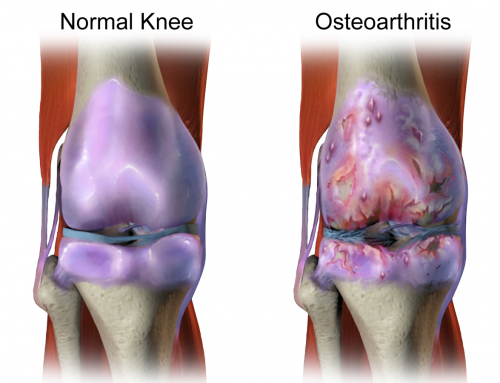Losing weight, by itself, does not magically restore good health. People who are overweight tend to be reaping the consequences of an overall unhealthy lifestyle, malnutrition, toxicity, excess stress, submission to a sick food industry, and disconnection with nature. While it is certainly true that many health problems – like hypertension, diabetes, osteoarthritis, asthma, fatty liver, cancer, etc. – are commonly related to excess weight, a person can become skinny and yet remain in poor health, still burdened by these deficiencies and imbalances.
Don’t focus on losing weight. Instead, focus on building health.
This does not mean go on a diet! Dieting refers to a temporary restriction of eating. Once weight is lost, the dieter returns to his/her ‘normal’ way of eating and usually regains weight. Various diet plans have pretty much the same results: Average weight loss is 6% (about 10 to 15 pounds) and most dieters regain all the weight they lost within five years. Programs in which food is purchased or diets from diet books don’t teach people enough about food, so old eating patterns, when resumed, lead to regaining the weight.
Cutting calories alone is a losing game. Because at some point, weight loss stops even while continuing the lower calorie intake. The more you slash calories, the more your metabolism slows, and the less weight you lose.
Instead of dieting, and trying to subtract calories that ‘make you fat,’ add foods and activities that improve overall health and well-being. You’ll find that a happy side-benefit will be loss of excess weight and unsightly fat. Improve yourself more by addition than subtraction! Eating well should be a lifetime goal, not something to do for a few months or a year.
How to lose by addition? Focus on where your calories are coming from. Our bodies can distinguish one type of calorie from another. What you eat has a huge influence on long-term weight management and how the body determines whether to store fat or use it for energy. Foods and drinks must be looked at not for just their calories but how they affect your body. You can count calories all day long and still be eating poisonous junk. And if you eat nutrient-poor “non-food,” your body can do little else but quickly ‘burn’ it or store it as fat; if you eat nutrient-dense “real food,” your body uses it for healthy function and to maintain muscle. Muscle tissue not only looks good, but continually burns energy. The more lean muscle you have, the greater your metabolic rate and fat-burning capacity.
The typical calorie-counting weight-loss diets can decrease muscle mass and lower metabolic rate by 10 to 20%. By reducing calories with low-nutrient non-foods, you may lose weight, but your body suffers, you lose muscle tissue, and it will be easier to regain weight. People who focus on nutrient-dense foods tend to consume fewer calories. One big reason is that your body knows it’s getting the nourishment it needs so you don’t need to eat more.
Don’t eat low-quality foods! Do you ever wonder why you often continue eating and craving food even when you’re full? Because if you’re eating lots of non-foods, even after a meal your body still needs nutrition. Your body needs nourishment from real, naturally nutrient-rich foods, not over-processed non-foods low or devoid of nutrients. Overweight usually means under-nutrition, a body craving vital nutrients. You’re hungry because although you just ate, you didn’t eat real food!
Real foods are packed with nourishment and are satisfying, keeping you full longer. Fresh vegetables and fruits; whole grains; beans; eggs; quality meats, poultry and seafood; nuts and seeds; and certified raw milk products – these benefit weight loss, weight maintenance, and true health. And they taste good.
The big obstacle to surmount is we tend to like foods we’re used to eating. Yet retraining your taste buds is not as difficult as it seems. You learned to enjoy foods and nonfoods. You can re-learn to enjoy more healthful foods. Find palate-pleasing preparation methods. Pay attention to texture, flavor, spiciness and various nuances of real foods. Many people are amazed to discover that they begin to savor foods they used to (or think they used to) dislike. Later, when they eat a non-food they used to cherish, it doesn’t taste as good; they’ve lost their enjoyment of it. This transition takes time, but it definitely happens. Cultivating a taste for unfamiliar foods requires exposure, so try and try again.
We want our children to be healthy. Children learn to like what their caregivers eat. The best way to teach someone that healthful, nutritious foods are important and delicious is to eat them yourself.
What else helps? Eating more raw foods (vegetables, fruits, raw milk products, nuts, seeds) can result in dramatic improvements in weight and health. Try beginning each meal with raw fruit, a veggie-rich salad or a broth-based soup. Drink plenty of water throughout the day. Instead of chips or pretzels, eat raw nuts or seeds (combined, if desired, with dried fruits) or raw milk cheese. Eating breakfast may help keep you lean while skipping breakfast is linked to weight gain.
As you begin this process, you will likely notice food (or nonfood) cravings. Cravings can reflect hormone imbalances, blood sugar fluctuations, a poor sense of taste or smell, a lack of digestive enzymes, or use of medications that increase appetite. Adrenal fatigue, for example, often causes cravings for salty items and/or chocolate. Cravings can point to nutrient deficiencies as well. I had a patient who craved mayonnaise; she would get a spoon and eat it straight from the jar. Of course, it contained refined, altered fats. She had difficulty digesting fats and deficiencies of fatty acids. Her body was trying to tell her what was wrong but her mind misdirected her to a wrong solution. Once support to fat digestion and supplemental sources of fatty acids improved her situation, the craving disappeared. Cravings always mean something, but some detective work may be needed to discover what it is.
Keep an eye on these cravings and write them down. When you call and make an appointment, we can sit down and discuss the possibilities that they might suggest. As always, LiveWell is your partner in good health!




Leave A Comment